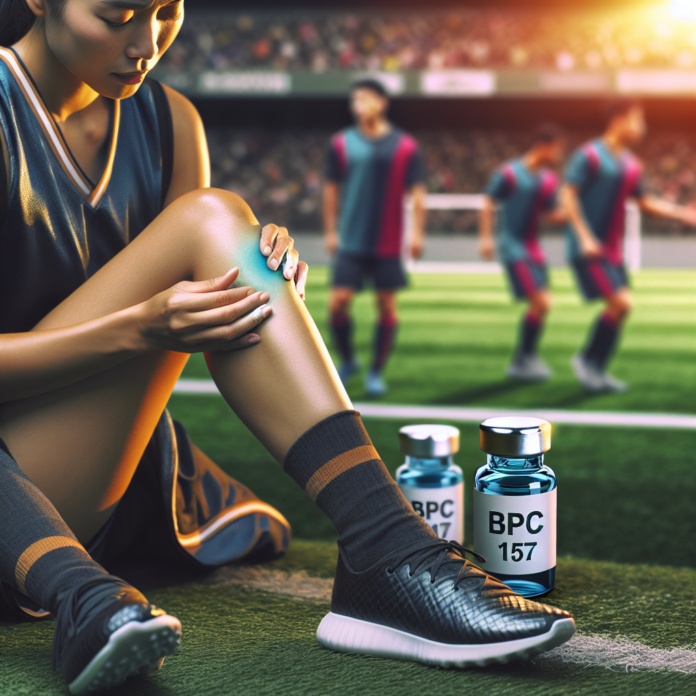In the world of sports injuries and orthopedic challenges, the quest for effective treatments is ever-evolving. Among these is the exploration of peptides like BPC 157, which have garnered attention for their potential healing properties. In this blog, we delve deeper into whether BPC 157 can truly aid those struggling with persistent knee pain years after an ACL tear and subsequent surgery. Inspired by the insights of Dr. David Guyer, a triple board-certified orthopedic surgeon, we discuss the potential benefits and limitations of this peptide, the importance of consulting healthcare professionals, and how such innovative treatments might fit into the broader landscape of regenerative medicine. Whether you’re an athlete, a patient, or simply intrigued by advancements in medical science, join us as we explore the possibilities and nuances of BPC 157 in addressing chronic knee pain.
Understanding BPC 157
BPC 157 is a peptide naturally found in the human stomach, known for its potential to promote the healing of muscles, tendons, and ligaments. Synthetic versions are crafted by compounding pharmacies, allowing them to be prescribed by physicians. Typically, patients administer BPC 157 through daily subcutaneous injections, although there are capsule forms available—though their efficacy in dealing with orthopedic issues remains debatable compared to injections.
Potential Benefits of BPC 157
- Healing Support:
- BPC 157 is primarily noted for supporting the healing of soft tissues, such as muscles and tendons.
- Some studies hint at its capability in promoting repair and regeneration in joint areas like the knee, though evidence for this remains limited, particularly in human studies.
- Pain Relief:
- A notable study identified that a significant percentage of participants experienced marked pain improvement after BPC 157 injections, though the study’s design was not robust enough to draw definitive conclusions.
- Osteoarthritis Aid:
- Given the prevalent connection between ACL injury and osteoarthritis, BPC 157’s potential for promoting joint health might offer some respite for individuals grappling with arthritis post-injury.
Limitations and Considerations
- Experimental Status: The FDA classifies peptides like BPC 157 as experimental, warranting a cautious approach.
- Limited Research: Current studies, particularly on humans, are insufficiently conclusive. More data, especially placebo-controlled and randomized trials, are necessary to establish definitive efficacy.
- Route of Administration: There’s debate about whether injecting closer to the knee yields better results compared to typical abdominal injections.
- Complementary Treatments: BPC 157 might be viewed as a potential component of a broader treatment plan, alongside options like stem cell therapy or exosomes, especially tailored towards treating arthritis.
Patient Considerations
If you’re considering BPC 157 as a treatment option, it’s crucial to engage in thorough discussions with your healthcare provider. Some key considerations include:
- Personal Medical History: Understanding your specific condition and history of knee injuries can influence treatment appropriateness.
- Exploring Alternatives: Discuss other possible treatments, including those beyond peptides, to ensure a comprehensive approach to managing chronic knee pain.
- Risks and Benefits: Weighing the potential benefits against the experimental nature and associated uncertainties is essential for informed decision-making.
Looking Forward
Ongoing research and innovation are vital in the field of regenerative medicine. As studies on BPC 157 and similar peptides advance, we may gain a clearer understanding of their role in treating musculoskeletal injuries and chronic conditions like osteoarthritis. For now, individuals must navigate these waters carefully, informed by professional guidance and clear communication with their healthcare providers.
In conclusion, while BPC 157 presents intriguing possibilities for alleviating chronic knee pain post-ACL injury, it remains within the experimental realm. Patients considering this peptide must prioritize their health and safety by consulting with qualified medical professionals. With further research and development, BPC 157 might one day become a cornerstone in the management of orthopedic injuries, providing new hope for those seeking relief from persistent pain.
